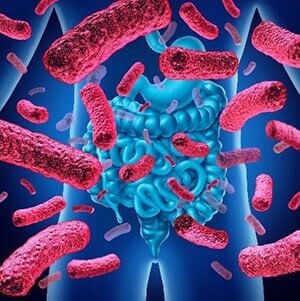Why Sleep Deprivation is Your Worst Enemy? Do you struggle to doze off for 7-9 hours of sleep at night? You are not alone. Sleep deprivation is a frequent and severe health issue affecting 28% of people aged 18 or above. Although some people like to say, “You can sleep when you are dead”, long-term sleep deprivation is linked to several adverse health effects which can speed up the “when you are dead” portion of that statement. This article uncovers some serious health consequences of sleep deprivation that will make you dive under the covers starting tonight!
Although seemingly trivial, chronic sleep deprivation is a real problem that impacts 50-70 million Americans that requires easy-to-follow, practical solutions. If you are one of the millions of Americans struggling to sleep well, you are likely to be suffering low motivation, lack of patience, depression, anxiety, and inability to focus on your day-to-day tasks.
You may feel that your body will adjust to your sleep-deprived routine, but that is really wishful thinking:
Sleep is natural; sleep deprivation is not. When you are chronically sleep deprived, you are choosing to lower your quality of life. Apart from interfering with a healthy routine and negatively impacting your memory, chronic sleep deprivation can damage your overall health, far more than you had imagined!
Concerning, right? Let’s discuss why sleep deprivation is so bad for you.
Sleep Deprivation Ages Your Skin Quickly
 There’s a reason why beauty sleep is called “beauty” sleep. It is the secret to achieving that youthful glow you search for in serums, cleansers, moisturizers, and eye creams. Surely, a religious skincare regime can work wonders for your skin, but it won’t help much if you aren’t on good terms with your bed. If you have not been able to sleep well for a few days, you will notice the most apparent signs of sleep deprivation showing up on your face: dark circles, puffy eyes, and droopy eyelids.
There’s a reason why beauty sleep is called “beauty” sleep. It is the secret to achieving that youthful glow you search for in serums, cleansers, moisturizers, and eye creams. Surely, a religious skincare regime can work wonders for your skin, but it won’t help much if you aren’t on good terms with your bed. If you have not been able to sleep well for a few days, you will notice the most apparent signs of sleep deprivation showing up on your face: dark circles, puffy eyes, and droopy eyelids.
Don’t believe it? Try getting some sleep and check the mirror to witness the improvements yourself.
If you have been sleep deprived chronically, the outcomes could be worse, and here’s why:
Our bodies are naturally conditioned to heal and recover while we sleep. Our skin continually gets exposed to sunlight, smoke, and stress. When you get an optimum night’s sleep, your skin can focus on healing from these stressors. It does so by generating the production of collagen and elastin. When you don’t sleep, your skin becomes unable to produce enough of these proteins. It may also disrupt the production and release of hormones involved in maintaining the health of your skin.
The result overtime is skin that gets dull, saggy, and starts to age prematurely.
Sleep Deprivation Lowers Your Productivity
Remember listening to that podcast on productivity? Or the last book you read about being more productive? Surely, you want to be more productive and efficient every day and a good seven to nine hours night sleep is one way to support that.
 Several studies have shown how lack of sleep can lower your productivity, mental focus, and clarity. Apart from making you less productive, sleep deprivation can also mess with your memory, judgment, and learning. There is data to back this up:
Several studies have shown how lack of sleep can lower your productivity, mental focus, and clarity. Apart from making you less productive, sleep deprivation can also mess with your memory, judgment, and learning. There is data to back this up:
Lack of sleep profoundly affects a part of your brain called the hippocampus, the primary function of which is to form memory and enhance your learning.
When you are sleep deprived chronically, your memory, judgment, and learning will be heavily impacted.
The result? A sleep-deprived person becomes more prone to making blunders on the job. Likewise, a sleep-deprived adolescent is more likely to struggle with poor school performance and behavioral issues.
It is not uncommon for sleep-deprived individuals to struggle with making correct judgments and intelligent decisions. These errors can unfortunately lead to accidents and the negative consequences of poor performance at work or school.
Sleep Deprivation May Cause Weight Gain
 Yes, another price you pay when you don’t sleep may be additional pounds! There’s tons (pardon the pun!) of scientific evidence to support the fact that lack of sleep can meddle with your weight loss efforts. When you struggle with sleeping properly, your body does not get adequate rest to exercise. Consequently, you find yourself demotivated and end up binge-eating for energy to get through the day (which can lead to gaining weight).
Yes, another price you pay when you don’t sleep may be additional pounds! There’s tons (pardon the pun!) of scientific evidence to support the fact that lack of sleep can meddle with your weight loss efforts. When you struggle with sleeping properly, your body does not get adequate rest to exercise. Consequently, you find yourself demotivated and end up binge-eating for energy to get through the day (which can lead to gaining weight).
When you sleep, you give your worked-out muscles the time they need to repair from the wear and tear of exercise. Unfortunately, all those weight training sessions would be of no use if your sleep-deprived body does not get adequate rest; as it won’t be able to repair and build muscle mass.
Finally, certain hormones and brain chemicals regulate your appetite through satiety centers in your brain. Sleep deprivation affects these hormones, and the imbalance can indirectly impair weight loss (or even lead to weight gain).
Sleep Deprivation Can Make You Anxious
 Remember the last time you got a full 8-hours of sleep? Weren’t you happier and more content than your usual sleep-deprived self? It’s not unusual for sleep-deprived people to get impatient and short-tempered: It’s because lack of sleep is linked to low mood.
Remember the last time you got a full 8-hours of sleep? Weren’t you happier and more content than your usual sleep-deprived self? It’s not unusual for sleep-deprived people to get impatient and short-tempered: It’s because lack of sleep is linked to low mood.
Likewise, it’s a prevalent issue for people with emotional issues like depression and anxiety to struggle with falling asleep. Though there is insufficient evidence in this area, chronic lack of sleep appears to also lead to depression and anxiety.
Researchers believe that sleep deprivation can cause mood swings and make you angrier and irritable. It may also impair our ability to perceive and manage our emotions.
The next time you find yourself being grumpy and impatient for no obvious reason, try getting a straight 8 hours of sleep and see if your mood significantly improves the next morning.
Sleep Deprivation May Disturb Your Gut Microbiome
 Gut microbiome or gut flora are groups of microorganisms that reside in our digestive system and help our body regulate their normal physiologic functions. Many chronic illnesses have been linked to an unhealthy gut microbiome. Disturbance in the structure and variety of these gut microbiome alter normal body function.
Gut microbiome or gut flora are groups of microorganisms that reside in our digestive system and help our body regulate their normal physiologic functions. Many chronic illnesses have been linked to an unhealthy gut microbiome. Disturbance in the structure and variety of these gut microbiome alter normal body function.
Here comes the scary part:
Studies have shown that sleep deprivation massively impacts gut microbiomes, disturbing your gut’s normal physiologic functioning.
There is also some scientific evidence explaining that your gut has its circadian rhythm like your brain. When your sleep patterns are disturbed, your gut’s circadian rhythms get heavily impacted in a negative way.
For the sake of your gut health, get some sleep!
Sleep Deprivation Can Impact Your Sex Life
 There are tons of scientific claims to support the fact that sleep deprivation is directly linked to low libido.
There are tons of scientific claims to support the fact that sleep deprivation is directly linked to low libido.
When you’re sleep-deprived, your body and brain are both fatigued. This is precisely why people who suffer from lack of sleep struggle to get in the ‘mood’ and, thus, have a lower sex drive.
If you have been sleep deprived lately, and are struggling in your sex-life, it’s wise to take a look at your sleep (and sex) schedule. Try figuring out how, why, and when your sex life became troubled and see if exhaustion is part of the issue.
Sleep Deprivation Can Lead to High Blood Pressure
 The outcomes of sleep deprivation do not end here. There’s a reason why sleep deprivation is your worst enemy:
The outcomes of sleep deprivation do not end here. There’s a reason why sleep deprivation is your worst enemy:
Lack of sleep spares no organ system, including the cardiovascular system. Scientists have discovered that chronic sleep deprivation persisting for several years increases your risk of developing heart disease and high blood pressure. Likewise, men who sleep less than seven hours at night are more likely to suffer from high blood pressure.
Although the exact mechanism remains unclear, sleep deprivation may result in overstimulation of the brain’s sympathetic nervous system. As a result, your body stays alert, heart rate increases, and the blood supply to heart also increases. When you stay sleep deprived for a long time, this overstimulation leads to high blood pressure.
Sleep Deprivation and Heart Attacks
 Did the subhead above just give you a mini-heart attack? We wish this wasn’t true, but we can’t deny science either.
Did the subhead above just give you a mini-heart attack? We wish this wasn’t true, but we can’t deny science either.
Several epidemiological studies have highlighted a direct relationship between sleep loss and heart attacks. Of course, lack of sleep won’t give you a heart attack overnight. However, chronic sleep deprivation can lead to weight gain, obesity, and hypertension – all of which can be precursors to a heart attack.
In fact, a 10-year long study discovered that sleeping for less than five hours is associated with a 45% increase in the risk of heart diseases.
So, sleep for your heart’s sake!
Ready to Win this Fight?

The consequences of sleep deprivation are undoubtedly horrid. Although considered by many to be an insignificant topic to wellness and often ignored, lack of sleep can destroy your physical, physiological, emotional, and mental health over time.
If you are constantly suffering from sleep deprivation, don’t let your worry keep you up at night. Check out these Top 10 Things You Should Do Now for a Better Night’s Sleep.
Lastly, if you have friends and family suffering from lack of sleep, share this article and let them know you care. Sharing is caring!









